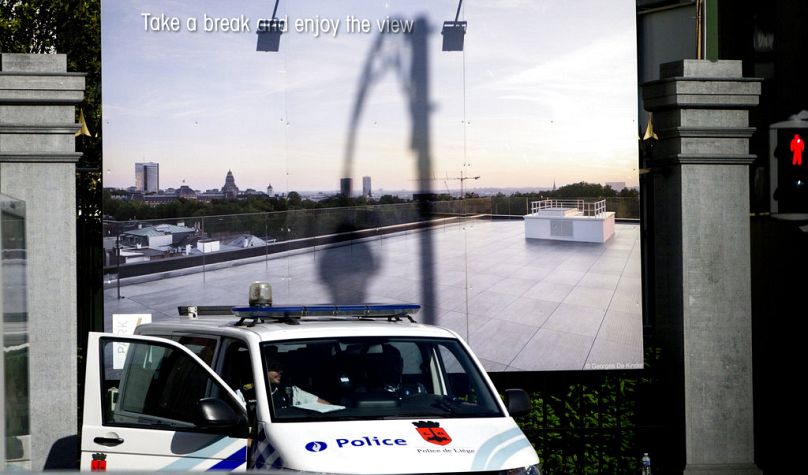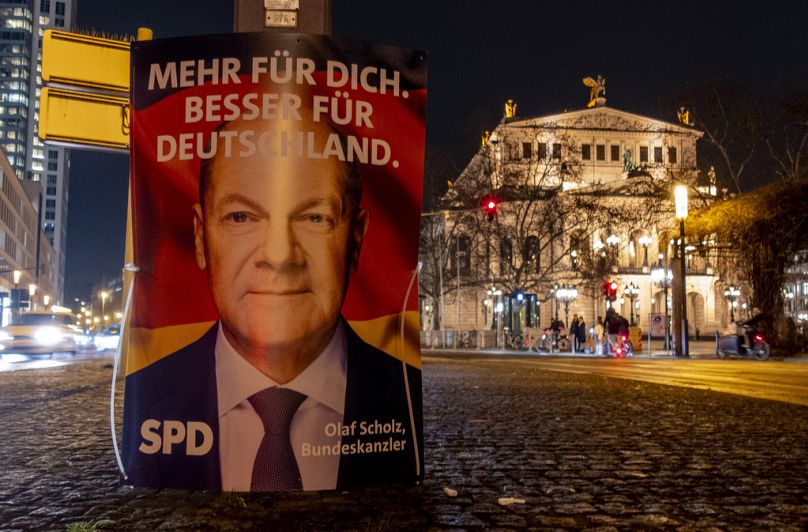EU rules on political ads enter into force: What will change?

Elections across Europe have been plagued by attempts to spread disinformation in recent years.
In the Romanian presidential election last November, the first round was invalidated based on intelligence reports that allegedly showed Russian involvement in voter influence through social media to bolster support for the then relatively unknown ultranationalist candidate Călin Georgescu.
Other elections, such as those in France in June and July 2024 or the Czech general vote last weekend, were also reportedly targeted by Moscow-made disinformation.
According to the latest EU regulation, which comes into force on Friday, political ads must now carry a transparency label. This notice is meant to clearly identify ads as such and include key information, such as the sponsor, the election to which they are linked and the amounts paid.
The European Commission proposed the rules, known as the Transparency and Targeting of Political Advertising regulation (TTPA), in 2021 to ensure that people are aware of why they are seeing an ad, who paid for it, and how much.
At the time, the Commission said it had seen “too many examples of risks stemming from the digital realm,” such as the Capitol Hill riots in the US in 2021, as well as claims about Russian interference in the United Kingdom's 2016 Brexit referendum.
During the negotiations, national governments and EU lawmakers proposed amendments to the original Commission proposal, which notably led to the ban on foreign financing of political advertisements in the EU. The rules applied 18 months after they entered into force.
The Dutch parliamentary election on 29 October will be the first to test the new rules.
Users, however, might not immediately notice that many changes this month, according to Luise Quaritsch, policy fellow at the Jacques Delors Centre.
“Political candidates and others just will not be able to amplify their content through paid advertising but will have to rely on content being shared organically,” she told Euronews.
Legal uncertainties
The political ad rules – of which most of the provisions will enter into force on October 10 – caused frustration by Big Tech companies Meta – which owns Instagram, Facebook, Threads and Whatsapp - and Google.
Other tech platforms such as LinkedIn and the videosharing app TikTok already do not allow political ads. On X, the platform owned by billionaire Elon Musk, these types of ads are allowed, but only if they are in line with country-specific requirements.
Meta previously announced that they would stop political advertising due to “significant operational challenges and legal uncertainties” and “unworkable requirements”.
The US social media company said that it has had tools in place since 2018 that provide transparency for ads about politics and elections, and it claimed that the new obligations create an "untenable level of complexity and legal uncertainty for advertisers and platforms operating in the EU.”
Fellow US tech giant Google published a similar statement late last year. It said that the new law introduces “legal uncertainties for political advertisers and platforms.”
“For example, the TTPA defines political advertising so broadly that it could cover ads related to an extremely wide range of issues that would be difficult to reliably identify at scale,” a statement said. Paid political promotions will no longer be permitted on YouTube in the EU either.
Although every EU country had rules in place for political advertising before, they didn't focus as much on online environments.
Ahead of the 2019 European elections, the Commission drafted an action plan against disinformation with some measures concerning political advertising, to which platforms could sign up to.
An assessment of the voluntary rules showed shortcomings, however, and the EU executive concluded that transparency was not sufficiently increased. At the same time, uniform definitions across platforms and the 27 EU member states were lacking.
Platforms are making quite some money from advertising: an analysis by Euronews from the EU elections last year found that Hungarian Prime Minister Viktor Orbán, for example, splurged more than €60,000 on one ad on Google. That garnered him over 10 million views in just 11 days – more than Hungary’s population, though some may have seen it twice.
Ahead of the local election in Belgium in October last year, Flemish political parties collectively spent more than €1.7 million on Facebook and Instagram ads, with the far-right party Vlaams Belang accounting for one-third of the total, at over €500,000.
In Germany, political parties have spent some 1.5 million on Google ads during the election campaign in February, an analysis shows. In contrast, Meta earned €3.3 million from ads in Germany in the run-up to the vote.
Smaller parties hit the hardest
Claes de Vreese, a professor at the University of Amsterdam with a focus on media and democracy, said that political parties and candidates will have to explore alternatives.
“That can be platforms where ads are still allowed, it can be a return to broader ads in for example newspapers, it can be more refined and extreme organic content, or perhaps buying influencers’ endorsements.”
Smaller parties might be hit harder by the rules than others, according to De Vreese. “Many party leaders and prominent political figures have a solid follower base. But smaller parties or lower ranked candidates might not be able to make it with organic content, they relied on (targeted) advertising,” he said.
Quaritsch added that “Political actors might feel additional pressure to publish content that does well on social media to generate more views, such as polarising content - even though some of the same mechanisms apply to paid political advertising as well.”
The media sector also warned in its public feedback to the Commission’s call for evidence in June, which would lead to more practical guidance for companies on how to implement the rules, in response to the ambiguity of the definition of political advertising.
The European Broadcasting Union (EBU) and the Publishers Council – which unites CEOs of Europe’s leading media organisations active in news media, television, radio and digital marketplaces – worry that publishers may struggle to comply with the rules.
"Not only will publishers not have the technical means to comply, but nor will they have the technical means to refuse political advertisements if they are served through programmatic advertising, thereby exposing publishers to unacceptable risk,” the two said.
They called for more clarity on how sponsors should be identified, formats for declarations to ensure consistency and verification processes to ensure the authenticity of those funding the ads.
Today



